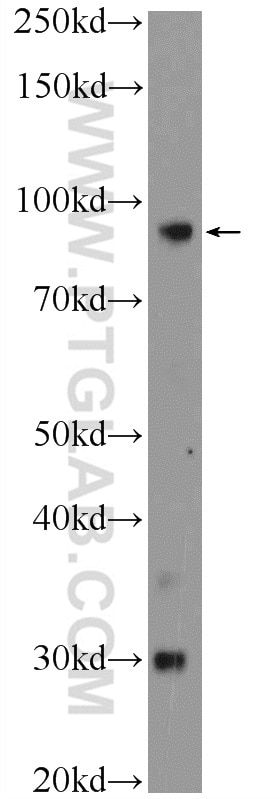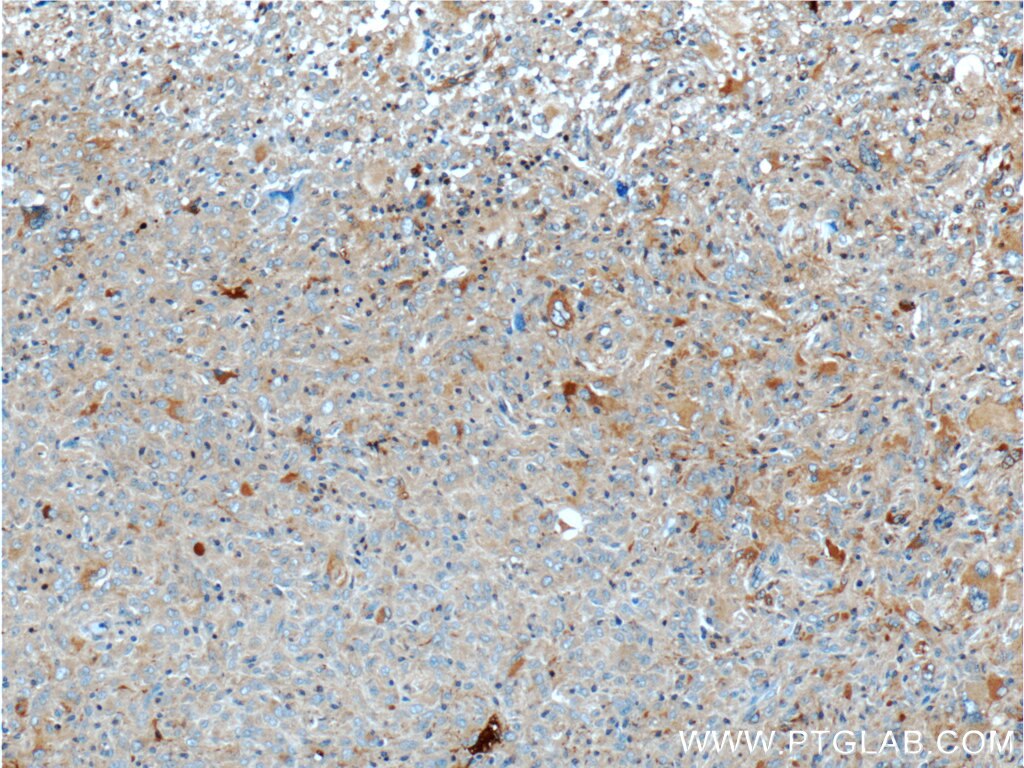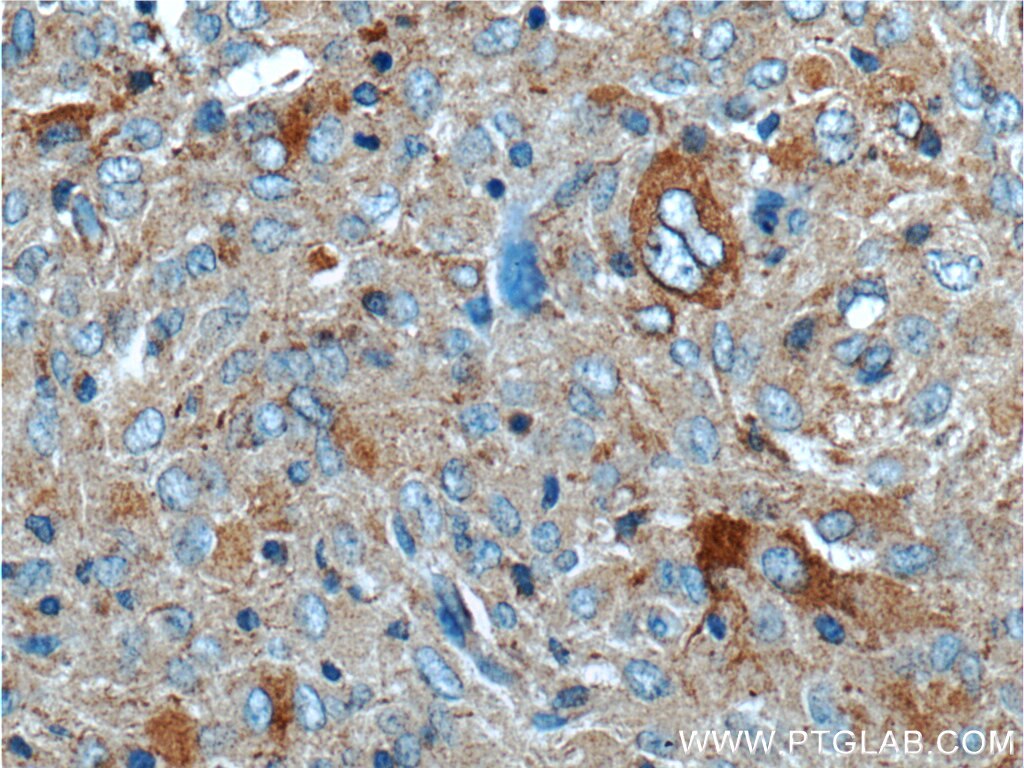PLA2G4B Polyclonal antibody
PLA2G4B Polyclonal Antibody for IHC, WB,ELISA
Host / Isotype
Rabbit / IgG
Reactivity
human
Applications
WB, IHC,ELISA
Conjugate
Unconjugated
Cat no : 55074-1-AP
Synonyms
Validation Data Gallery
Tested Applications
| Positive WB detected in | human plasma tissue |
| Positive IHC detected in | human gliomas tissue Note: suggested antigen retrieval with TE buffer pH 9.0; (*) Alternatively, antigen retrieval may be performed with citrate buffer pH 6.0 |
Recommended dilution
| Application | Dilution |
|---|---|
| Western Blot (WB) | WB : 1:200-1:1000 |
| Immunohistochemistry (IHC) | IHC : 1:20-1:200 |
| It is recommended that this reagent should be titrated in each testing system to obtain optimal results. | |
| Sample-dependent, Check data in validation data gallery. | |
Product Information
55074-1-AP targets PLA2G4B in WB, IHC,ELISA applications and shows reactivity with human samples.
| Tested Reactivity | human |
| Host / Isotype | Rabbit / IgG |
| Class | Polyclonal |
| Type | Antibody |
| Immunogen | Peptide |
| Full Name | phospholipase A2, group IVB (cytosolic) |
| Calculated Molecular Weight | 88 kDa |
| Observed Molecular Weight | ~88 kDa |
| GenBank Accession Number | NM_001114633 |
| Gene Symbol | PLA2G4B |
| Gene ID (NCBI) | 100137049 |
| RRID | AB_2881261 |
| Conjugate | Unconjugated |
| Form | Liquid |
| Purification Method | Antigen affinity purification |
| Storage Buffer | 0.1M NaHCO3, 0.1M glycine, 0.02% sodium azide and 50% glycerol pH 7.3. |
| Storage Conditions | Store at -20°C. Aliquoting is unnecessary for -20oC storage. 20ul sizes contain 0.1% BSA. |
Background Information
PLA2G4B, also named as cPLA2-beta, is a member of the cytosolic phospholipase A2 protein family. It is calcium-dependent phospholipase A2 that selectively hydrolyzes glycerophospholipids in the sn-2 position with a preference for arachidonoyl phospholipids. PLA2G4B has five isoforms with MW 88 kDa, 100 kDa, 55 kDa and 114 kDa.
Protocols
| Product Specific Protocols | |
|---|---|
| WB protocol for PLA2G4B antibody 55074-1-AP | Download protocol |
| IHC protocol for PLA2G4B antibody 55074-1-AP | Download protocol |
| Standard Protocols | |
|---|---|
| Click here to view our Standard Protocols |




